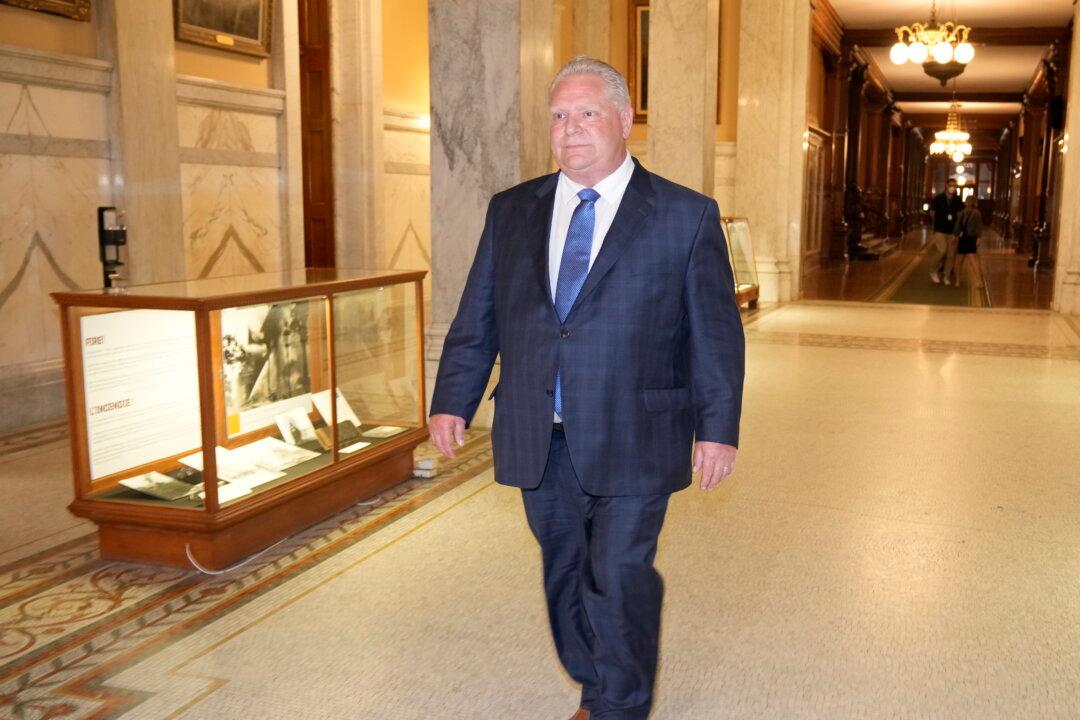Some Ontario political science experts say the recent provincial budget presented by Premier Doug Ford’s Progressive Conservatives was geared to score a victory in the June 2 election and that it left his opposition with little to work with.
The record $198.6 billion budget includes $185.2 billion of spending this fiscal year on bread-and-butter political items, such as more infrastructure, jobs and skills training, health care, home care, and public transit. Only $6.9 billion of that $185.2 billion is allocated to COVID-19 response.





